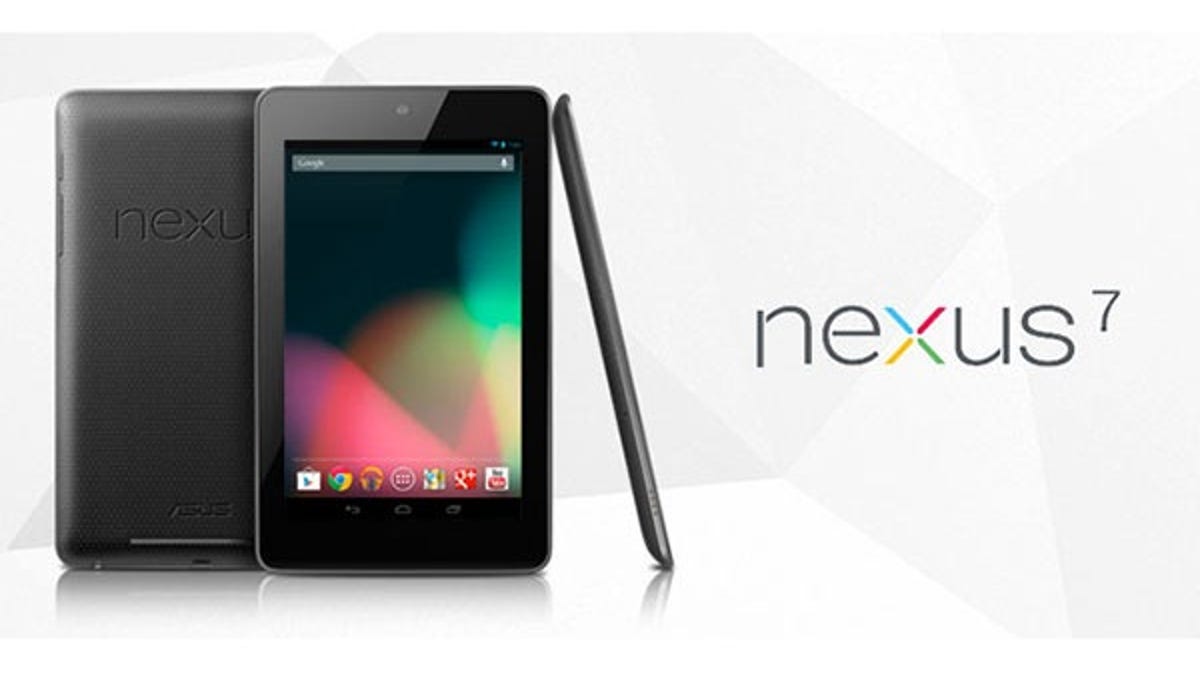Is Nexus enough to hold off the Windows 8 tabs?
Google has finally unveiled its own Android-powered tablet, but with just months before Microsoft's Windows 8 Surface enters the tablet market, we wonder whether the Nexus 7 is enough.

(Credit: Google)
After what seems like years in the making, Google has finally unveiled its own Android-powered tablet. But with just months before Microsoft's Windows 8 Surface enters the tablet market, we wonder whether the Nexus 7 is enough.
We're sure we're not alone in this thinking, Google seems to be wondering the same thing. Its AU$249 price tag is a bargain bin price for a new device with the latest hardware. A scan across the various electronics stores in Australia shows how dramatically Google is undercutting the competition; even Toshiba's 7-inch tablet, with last year's components, still demands a AU$400 price at retailers like JB HiFi — Samsung's 7-inch tablet is twice the price. What is Google saying with its pricing? That it feels it can't compete? Or that it doesn't have the functionality to charge a premium?
Google's reveal, at its I/O developers conference, spoke volumes of the place it imagines an Android tablet plays in the mobile computing landscape. Google's Hugo Barra demonstrated the features of the new 7-inch tablet at the event, and went into great detail about the multimedia abilities of the tablet, about its tight integration with the Play Store and its chops as an eBook reader and cinema screen.
The term "one-trick pony" wouldn't be fair in this context, but focusing on a single purpose, if not a single task, reminds us of some of yesterday's favourite gadgets. Everyone loved the Sony Walkman until Apple made the iPod, which, in turn, lost favour when smartphones played music — and made calls, browsed maps, fetched email and surfed the web.
Conversely, Microsoft's Surface demonstration, a fortnight ago, told a very different story about devices in the same broad tech category. The Surface tablets have a big screen, media players and Microsoft-owned media services to plug into — but the emphasis was on productivity. Fans of the Microsoft tablets are still talking about the ingenious design of the new keyboard screen covers, and tossing up whether the market will lean towards the Windows 8 Pro model, with its Core i5 Intel processor, or will it choose a flashy new ultrabook instead.
As for pricing, the new Microsoft tablets will be priced like computers, and though no firm prices have been revealed, many expect the Surface tablets to cost in excess of AU$1000 each, both the Tegra and Intel processor options. Much more than Apple's popular iPad and light-years more than Google's new Nexus.
These three tablet options will go a long way to answering a question the best in our industry are still struggling to find an answer for. What in the world is a tablet computer? Is it a PC companion? Is it the sort of device that you use on the move, between better, more powerful machines? If so, Google's Nexus 7 should sell like hotcakes.
Or is a tablet a computer, in its own right? Should someone buying a tablet expect it to behave like the machines at their office and in their studies? Will people pay more to make sure their tablets can do more than play games and read books?
I certainly don't have the answers. My gut feeling is that Android tablets will struggle from here on, as Windows 8 tablets get cheaper and cheaper. Microsoft's Surface might be expensive, but the ASUS, Acer and Samsung versions will need to be increasingly competitive. People who use these machines will demand more from the tablet experience, and Android (and the iPad, to lesser extent) will need to adapt, or go the way of the Dodo, the Walkman, and the Zune.

